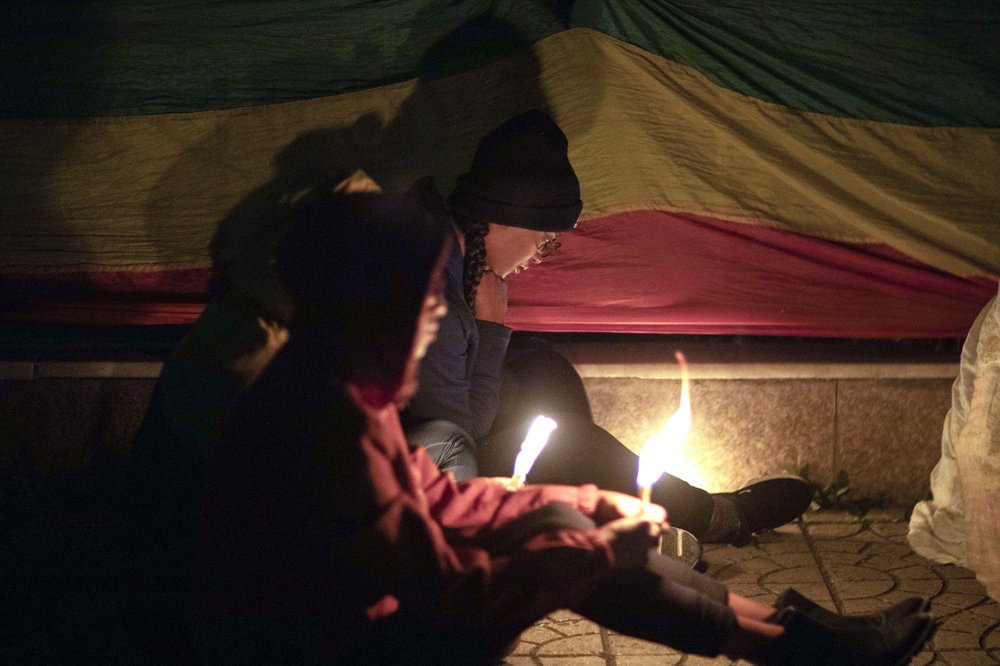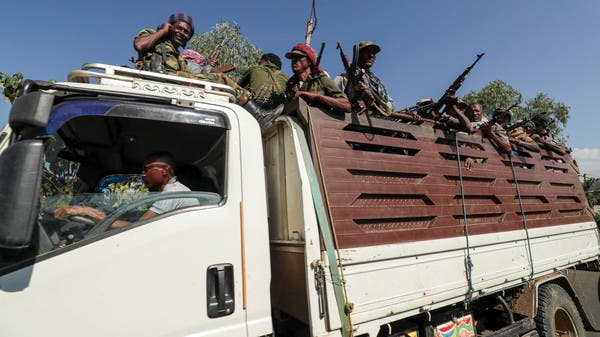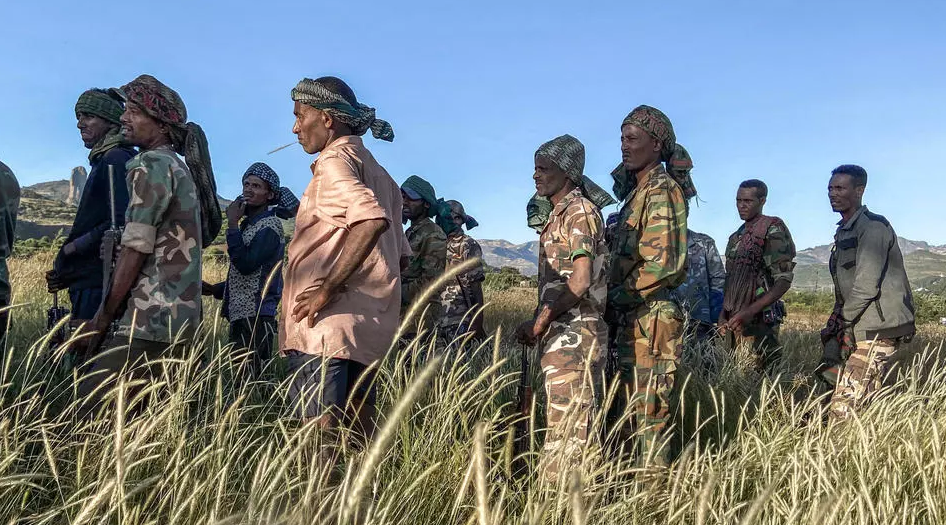
Ethiopian Orthodox Christians light candles and pray for peace during a church service at the Medhane Alem Cathedral in the Bole Medhanealem area of the capital Addis Ababa, November 5, 2020. /AP
Ethiopian Orthodox Christians light candles and pray for peace during a church service at the Medhane Alem Cathedral in the Bole Medhanealem area of the capital Addis Ababa, November 5, 2020. /AP
Ethiopia's deadly conflict with its northern Tigray region spilled over the border Tuesday as several thousand people fled into Sudan, along with soldiers seeking protection, while the Tigray regional leader accused Eritrea of attacking at the request of Ethiopia's federal government.
Ethiopian Prime Minister Abiy Ahmed rejected international pleas for dialogue with the Tigray regional leaders, saying there would be no negotiations until the "law enforcement operation" is over. He seeks to arrest the heads of a regional government his administration regards as illegal while destroying its well-stocked arsenal.
The flow of refugees is the first visible sign of a growing humanitarian crisis affecting millions of people at the heart of the Horn of Africa. Tigray remains almost completely cut off from the world nearly a week after communications were severed and Abiy announced a military offensive in response to an alleged attack on a military base.
The United Nations and partners in Sudan are preparing for receiving 20,000 refugees, at least initially.

Members of Amhara region militias ride on their truck as they head to face the Tigray People's Liberation Front (TPLF), in Sanja, Amhara region near a border with Tigray, Ethiopia, November 9, 2020. /Reuters
Members of Amhara region militias ride on their truck as they head to face the Tigray People's Liberation Front (TPLF), in Sanja, Amhara region near a border with Tigray, Ethiopia, November 9, 2020. /Reuters
Hundreds of people have been reported killed on both sides of the conflict so far, one diplomat in the capital, Addis Ababa, said. It remained difficult to confirm either side's claims. Each blames the other for sparking the conflict.
At least 3,500 refugees, including women and children, had arrived in Sudan's Kassala province, the head of the refugee agency there, Al-Sir Khalid, told The Associated Press. Others were on the way, he said.
By late Tuesday, the number of fleeing Ethiopians to Sudan's border province of Kassala and al-Qadarif surged past 6,000, the state-run SUNA news agency reported. The agency, citing unidentified officials, said that over 200,000 Ethiopians were expected to cross into Sudan in the coming days.
At least 30 armed Ethiopian troops joined the refugees fleeing into Sudan, SUNA reported. A Sudanese military official said they turned themselves in and asked for protection as fighting raged over the border. The official spoke on condition of anonymity because he was not authorized to brief reporters.
Sudan, which has sent more than 6,000 troops to the border, is under pressure from the international community to help make peace.

Amhara militiamen receive training on the outskirts of the village of Addis Zemen, north of Bahir Dar, Ethiopia, November 10, 2020. /AFP
Amhara militiamen receive training on the outskirts of the village of Addis Zemen, north of Bahir Dar, Ethiopia, November 10, 2020. /AFP
The TPLF once dominated Ethiopia's ruling coalition. Feeling marginalized by Abiy's political reforms after he took office in 2018, it broke away last year and then angered the federal government by holding a local election in September while national elections are delayed until next year.
Aid groups warn humanitarian needs will grow alarmingly as the conflict drags on.
"It's a very serious situation,' Sajjad Mohammad Sajid, the U.N humanitarian chief for Ethiopia, told The Associated Press. "It looks like, unfortunately, this may not be something which can be resolved by any party in a week or two. It looks like it's going to be a protracted conflict, which is a huge concern from the point of view of protection of civilians."
More than 1,000 people of different nationalities are stuck in Tigray, he added.
Sajid worried about the supply chain of food, fuel and COVID-19 medical supplies.
"We have trucks loaded with the food and medicines stuck on the way which need to go feed people and treat people in Tigray," he said. Even banks are not operational in the region now, affecting humanitarian cash transfers to 1 million people.
"We are now witnessing long queues in front of bread shops, grocery shops," Sajid said.
Source(s): AP

